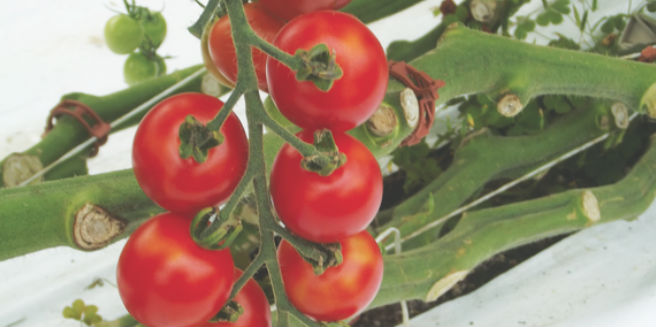May 8, 2019PMA, FPAA, Tomato Exchange respond to termination of Tomato Suspension Agreement
A variety of produce industry groups responded to the U.S. Department of Commerce’s May 7 termination of the agreement suspending the antidumping investigation on fresh tomatoes from Mexico.
The Produce Marketing Association issued the following statement:
“Trade is critical for the produce and floral industry, as the buying and selling of these products – including tomatoes – occurs in a global marketplace. The impact of the previous agreement for U.S. consumers has been year-round availability of fresh produce at an affordable price. We understand that there are different perspectives on the success of the suspension agreement on tomatoes among market participants. What everyone should be able to agree upon is the need for transparency and predictability. We urge the U.S. Department of Commerce and representatives of the Mexican government to expedite their discus

New York Public relations firm Indelable also released a statement it attributed to a consortium of the largest Mexican growers:


The Fresh Produce Association of the Americas (FPAA) also issued a statement, which reads:
“The Fresh Produce Association of the Americas (FPAA) is disappointed the Department of Commerce has terminated the Tomato Suspension Agreement. The agreement has been an important tool in protecting over 33,000 American jobs and creating stability in the marketplace.
“Many entities appealed for the signature of a new or revised Tomato Suspension Agreement. To that end, FPAA would like to acknowledge the efforts of our members, their growers, the Congressional Delegation, Arizona Governor Doug Ducey, and many others.
“It is our understanding that the Mexican growers put several proposals on the table to improve an already-effective agreement. Despite the fact that the agreement has been terminated, our hope is that Commerce continues to work in good faith with the growers in Mexico to negotiate a new agreement that balances concerns of growers in Florida with the need to protect our robust trading relationship.
“As the U.S. importers and distributors of tomatoes from Mexico, our members are proud of the work they do to bring consumers the fresh, flavorful varieties of tomatoes that they demand. Despite the decision from Commerce, our members continue to innovate and uphold their commitment to continuous improvement. As an industry, we look forward to continuing to supply retail and foodservice customers with the high quality, vine-ripened tomato varieties that drive sales in their stores and restaurants.
“The tomato industry is healthy today because of the pioneering U.S. companies that import produce from Mexico. In fact, a report by the Economic Research Service at the U.S. Department of Commerce states that per capita consumption has risen from 12 pounds to over 20 pounds of tomatoes per year over the last 30 years, adding that growing imports and emerging production technology, such as greenhouses in Mexico, are some of the key factors driving these demand increases.
“An analysis led by Dr. Timothy J. Richards, Morrison Chair of Agribusiness at Arizona State University, shows that consumer prices could rise between 40 percent and 85 percent throughout the year because of reduced volumes of tomatoes in the marketplace as a result of the duties being applied to Mexican tomatoes. This will especially target the consumer-preferred varieties, including tomatoes-on-the-vine (TOVs), vine ripe, roma, and the specialty tomatoes such as grape and cherry tomatoes.
“The FPAA is working closely with our members, CBP, and Commerce to ensure that the termination of the agreement and imposition of duties is as seamless as possible. We again thank our members, our industry allies, and our elected officials for their tireless efforts in this process.”
Statement form Florida Tomato Exchange on the Termination of the Tomato Suspension Agreement:
“We are pleased that the Commerce Department has terminated the tomato suspension agreement, which presided over a very difficult five-year period for the U.S. tomato industry. Although the agreement was created with good intentions, it was never effective in protecting American producers from dumped Mexican tomatoes. As a result, the U.S. industry has declined significantly over the last five years with many tomato growers across the country going out of business.
Negotiations for a new suspension agreement can still continue even as the antidumping investigation is resumed this month. The U.S. tomato industry remains open to a new suspension agreement so long as it is structured in a way that eliminates the loopholes of the previous agreement and has strong enforcement mechanisms. If a new agreement cannot be reached, we look forward to the antidumping investigation finally running its full course.”
Media Contact:
Michael Schadler
Executive Vice President
Florida Tomato Exchange















